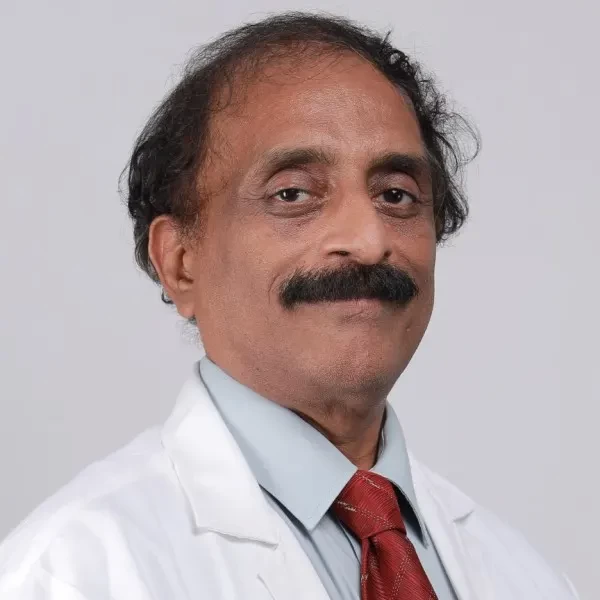 Medically reviewed by: Dr. Alexander George, Plastic Surgeon - Written byRiya Yacob - Updated on 16/06/2025
Medically reviewed by: Dr. Alexander George, Plastic Surgeon - Written byRiya Yacob - Updated on 16/06/2025
With the influence of social media and celebrity culture, plastic surgery has gained more popularity. Yet, despite its growing popularity, many myths continue to surround these procedures. From exaggerated risks to unrealistic expectations, plastic surgery myths can lead to confusion and unnecessary fears among those considering these procedures.
Understanding the facts about cosmetic surgery is important for making informed decisions about your body and health. Whether you're about to get a procedure or simply curious about it, separating facts from myths is the first step.
This blog is to debunk some of the most widespread myths about plastic surgery while providing accurate, evidence-based information.
One of the most persistent plastic surgery myths is that it's solely for cosmetic beauty. In reality, plastic surgery includes both cosmetic and reconstructive procedures. Apart from that, you see in social media trends that most of the surgeries are done for important functional purposes.
Reconstructive plastic surgery helps restore normal function and appearance to people affected by birth defects, traumatic injuries, burns, or disease. For example, breast reconstruction after mastectomy, cleft lip and palate repair, and burn treatment are all essential plastic surgery procedures that are for functional purposes.
Even procedures commonly considered cosmetic can have important health benefits. Rhinoplasty (nose reshaping) may improve breathing difficulties, while breast reduction can reduce chronic back and neck pain. These examples show how plastic surgery often serves both functional and aesthetic purposes simultaneously.
Many people use the terms plastic surgery and cosmetic surgery interchangeably, but they're not the same. Plastic surgery is a broad medical speciality focused on reconstructing facial and body defects due to birth disorders, trauma, burns, and disease. Cosmetic surgery is a subspecialty of plastic surgery that aims to improve appearance.
All cosmetic surgeons should be trained plastic surgeons, but not all plastic surgeons focus on cosmetic procedures. When considering aesthetic procedures, it's important to verify your surgeon's experience. Also, consider if they have specific training in the procedure you're interested in.
It is a myth that plastic surgery always results in an obvious, "done" appearance. Modern techniques and technology have evolved and today's skilled surgeons prioritize natural-looking results. The most successful plastic surgery is often undetectable, improving a person's natural features rather than dramatically changing them.
The exaggerated appearances sometimes associated with plastic surgery result from multiple aggressive procedures or outdated techniques. Nowadays, surgeons approach this differently. Most of the decisions are conservative and customized to each individual's features and goals.
While women are the majority of plastic surgery patients, the number of men seeking both cosmetic and reconstructive procedures continues to grow. According to recent statistics, male patients now account for a rising percentage of certain procedures. This includes rhinoplasty, eyelid surgery, liposuction, and gynecomastia correction (male breast reduction).
Men seek plastic surgery for many of the same reasons as women: to look younger, feel more confident, or address specific physical concerns. The stigma around male plastic surgery has decreased importantly in recent years, leading more men to explore these options.
Like any surgical procedure, plastic surgery also comes with certain risks. However, it is on the safer side if the surgery is performed by a qualified, board-certified plastic surgeon in an accredited facility. In these cases, most aesthetic procedures have excellent safety profiles. Serious complications are relatively rare.
Proper patient screening, thorough pre-operative evaluation, and following post-operative care instructions are required to minimize risks. Patients with certain medical conditions or lifestyle factors (like smoking) may face higher risks. This is why honest communication with your surgeon is essential.
When compared to traditional surgery, non-invasive and minimally invasive cosmetic surgery options often have even lower risk profiles.
Recovery experiences vary widely depending on the procedure, the individual's health, and how closely they follow post-operative instructions. While some major surgeries require significant downtime, many modern procedures are minimally invasive with quick recovery periods.
For example, many patients return to work within a week after procedures like eyelid surgery or a mini facelift. Non-surgical treatments like Botox or dermal fillers typically require little to no downtime at all.
Advances in pain management, surgical techniques, and post-operative care have improved the recovery experience for most patients. Your surgeon should provide a realistic timeline for your specific procedure.
As we've discussed, many common beliefs about plastic surgery are based on outdated information or misconceptions. Understanding the reality of aesthetic procedures helps patients make informed decisions based on cosmetic surgery facts rather than fears.
Modern plastic surgery offers a wide range of options. From minimally invasive treatments to comprehensive surgical procedures, all are made to address specific concerns. The field continues to evolve with new techniques and technologies that improve outcomes and reduce recovery times.
If you're considering plastic surgery, the most important step is consulting with a qualified, board-certified plastic surgeon. A good surgeon will take time to understand your case, explain your options, discuss potential risks and benefits, and help you develop realistic expectations.
At EMC Hospital in Kochi, the Department of Plastic and Reconstructive Surgery offers complete surgical treatment and post-operative care for patients of all ages. EMC specializes in reconstructing facial and body defects caused by birth disorders, trauma, burns, and disease.
What sets EMC Hospital apart is its dedicated approach to both reconstructive and aesthetic procedures, with a focus on restoring function and appearance. If you're considering plastic surgery or have questions about specific procedures, schedule a consultation.


Discover the truth behind common plastic surgery myths. Learn what's real, what's outdated, and how modern procedures truly work.

A step-by-step overview of GI surgery, covering what to do before surgery, what happens in the OR, and how to ensure a strong recovery.

Learn about cancer, its early signs, and prevention tips to lower your risk. Early detection saves lives—stay informed, take proactive steps, and protect your health.

Discover why a skilled pediatrician is essential for your child's growth, development, and overall well-being, from infancy through adolescence.

Discover how dermatology can help tackle acne, slow aging, and treat various skin conditions for healthier, more radiant skin.

Discover common childhood allergies, their symptoms, and management tips. Stay informed to keep your child safe and healthy.

Your liver plays a vital role in metabolism, digestion, immunity, and detoxification. Learn how liver health affects your body and ways to maintain its function.

Strong bones support your body and protect your health. Discover simple diet, exercise, and lifestyle tips to maintain bone strength at any age.

Discover the symptoms, causes, and treatment of hypertensive heart disease. Learn how high blood pressure affects your heart and when to seek medical care.

Learn about chest pain symptoms, causes, and treatments. Know when to seek medical help for a healthier heart.